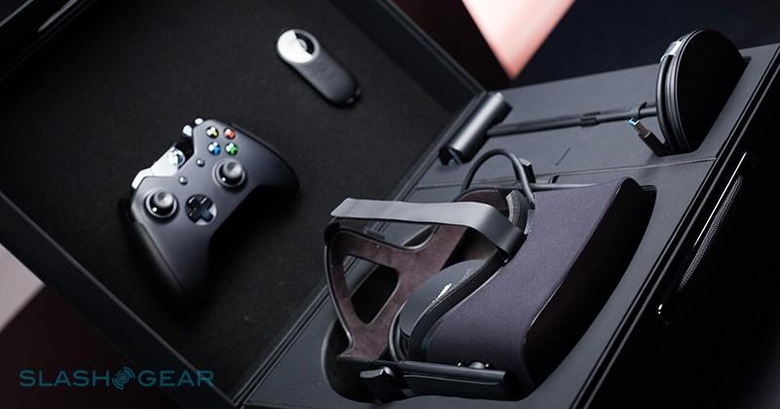Oculus "May" Use Data For Advertising, But When?
When it was announced that Facebook would be purchasing Oculus, it gave a lot of people pause. I certainly didn't see that move coming, but over time it slowly made more and more sense. After all, VR can be used for a lot more than just playing video games. It can be a great way to interact with other people, which is what Facebook is all about. Of course, Facebook is also about making money through advertising, which has caused some concern over the last few days.
After combing through the Terms and Conditions, it was found that by agreeing to them, you'd be giving Oculus the right to collect various data about how you use the Rift, and how you interact with various VR experiences. It goes on to spell out how this information could be used and sold for marketing purposes.
The thought of having your VR experiences monitored, and that data sent off to Facebook and other companies isn't a happy one. Many users cried out, upset that Oculus could betray them in such a way. Others merely stated that this move was an obvious one, since Facebook now owned the company.
Well, Oculus responded to the criticism by releasing a statement about the data that they collect, and how it will be used. Here is the full statement:
Users and content developers own all the content and IP they create using Oculus services. We are not taking ownership. Our terms of service give Oculus a license to user created content so we can enable a full suite of current and future products and services on our platform, like sharing a piece of VR content with a friend. People continue to own the rights to the content and can do whatever they like with it outside of our platform. This is very clear in our terms: "Unless otherwise agreed to, we do not claim any ownership rights in or to your user content."
At this time, there are not many places where people can upload their content to the Oculus platform. As we add more features, we're working to understand the best ways to give people more control over how they share content in VR.
We want to create the absolute best VR experience for people, and to do that, we need to understand how our products are being used and we're thinking about privacy every step of the way. The Oculus privacy policy was drafted so we could be very clear with the people who use our services about the ways we receive or collect information, and how we may use it. For example, one thing we may do is use information to improve our services and to make sure everything is working properly — such as checking device stability and addressing technical issues to improve the overall experience.
Lastly, Facebook owns Oculus and helps run some Oculus services, such as elements of our infrastructure, but we're not sharing information with Facebook at this time. We don't have advertising yet and Facebook is not using Oculus data for advertising – though these are things we may consider in the future.
The statement starts off well enough. The company stresses that all content you create using the Oculus services will remain your own. That's definitely good to know, especially for developers wanting to make use of the platform. Then it goes into how they'll use some of the data that they collect to help improve their services, and to address technical concerns. Alright, I'm still on board with their good intentions.
However, the last paragraph is where things start to fall apart, for me. They state that they are not sharing information with Facebook at this time. They also state that while Oculus data isn't used by Facebook for advertising, it's something they may consider for the future.
Why VR is the future of gaming, Part 1
Anyone who is familiar with this sort of terminology knows that this means that they are definitely going to be sharing your data with Facebook, and that they will definitely be using this information for advertising purposes.
Honestly, I'm in the camp that's expected this to happen from the day that Facebook announced that they would be acquiring Oculus. They paid a hefty sum, and they're going to want to turn a profit on that purchase. So they will obviously use the Oculus platform for advertising. That's the nature of their business, after all.

So since this was an obvious move, and Oculus isn't really denying it, that just leave one big question that I think everyone wants answered. How is this information going to be used in the future, and what kind of advertising can we expect to see when we strap on our Rift? For people who are spending $600 on a headset (and likely more when the Touch controllers come out), it would be nice to know the ways that their data is being used, and how they'll be advertised to.
VR is a very new space. It's currently in its infancy, and Oculus is one of the two big names in the business right now. The way that Facebook and Oculus function in the next year or two is going to have a huge impact on the way that VR is perceived by the masses. I get that they're wanting to tread lightly with how they're using information, and not wanting to jump into advertising right away. After all, they don't want to scare people off. However, by merely stating that they aren't doing this "at this time" and that they "may consider" in the future are almost more unsettling, because we don't know exactly what they're planning.
